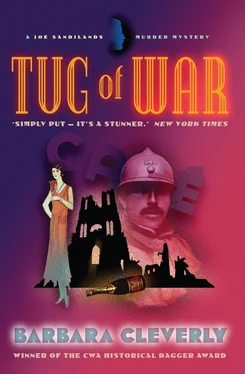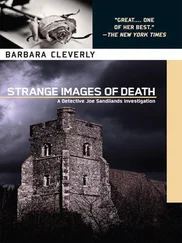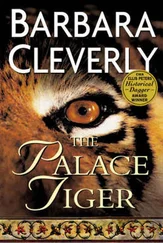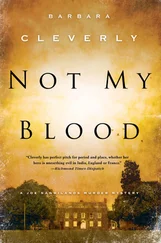Barbara Cleverly - Tug of War
Здесь есть возможность читать онлайн «Barbara Cleverly - Tug of War» весь текст электронной книги совершенно бесплатно (целиком полную версию без сокращений). В некоторых случаях можно слушать аудио, скачать через торрент в формате fb2 и присутствует краткое содержание. Год выпуска: 2011, Издательство: Constable & Robinson, Жанр: Исторический детектив, на английском языке. Описание произведения, (предисловие) а так же отзывы посетителей доступны на портале библиотеки ЛибКат.
- Название:Tug of War
- Автор:
- Издательство:Constable & Robinson
- Жанр:
- Год:2011
- ISBN:нет данных
- Рейтинг книги:3 / 5. Голосов: 1
-
Избранное:Добавить в избранное
- Отзывы:
-
Ваша оценка:
- 60
- 1
- 2
- 3
- 4
- 5
Tug of War: краткое содержание, описание и аннотация
Предлагаем к чтению аннотацию, описание, краткое содержание или предисловие (зависит от того, что написал сам автор книги «Tug of War»). Если вы не нашли необходимую информацию о книге — напишите в комментариях, мы постараемся отыскать её.
Tug of War — читать онлайн бесплатно полную книгу (весь текст) целиком
Ниже представлен текст книги, разбитый по страницам. Система сохранения места последней прочитанной страницы, позволяет с удобством читать онлайн бесплатно книгу «Tug of War», без необходимости каждый раз заново искать на чём Вы остановились. Поставьте закладку, и сможете в любой момент перейти на страницу, на которой закончили чтение.
Интервал:
Закладка:
Barbara Cleverly
Tug of War
Chapter One
Champagne, northern France, September 1915
Aline Houdart got off her bicycle and stood still, holding tightly to the handlebars. At this moment she needed to have her feet firmly on the ground and she fought down a ridiculous urge to take off her shoes, the better to connect herself to the earth. Surely she was mistaken? The sound she’d heard was a tree crashing to the ground in the forest around her. Or thunder. A snap of her starched headdress in the breeze as she rounded the bend perhaps. The explanations she snatched at were elbowed away by a single word: cannon. But at such close quarters?
Aline thought at once of her parents. They would have been able to identify the make, calibre and direction of fire. Her parents knew all about cannon. In their distant youth they’d been trapped in Paris during the Prussian siege of 1870 and, round a good fire in the wintertime, they still vied with each other to convey the horrors of bombardment by von Moltke’s fifty-ton siege gun. Aline tried to recall their lurid accounts of the hellish din with its earth-trembling accompaniment.
The sound came again. She got her bearings and, as she stood with her face to the north, the late afternoon sun over her left shoulder threw a shadow to the east and north in the direction of the blast. She stretched out an arm, extending the line, trying to remember what lay over there. The plain of Champagne, stretching for wide miles around Suippes and over to the bristling fortifications clustering around Verdun. She could deceive herself no longer. This was heavy artillery but were the guns French or German? Perhaps General Joffre had begun the longed-for offensive to clear von Bülow out of Champagne, but at all events the war was coming closer. No longer static, bogged down in trenches, not even creeping up quietly but advancing openly, snarling, in leaps and bounds. Soon they’d hear its roar in the mountains to the south, one day perhaps in the hills of Provence. And by then her world would have been consumed, this perfect place reduced to rubble.
She’d been lucky in her choice of day last month when she’d ventured north to look at the battlefield. It had been a quiet day at the front. She’d persuaded old Felix to get out the carriage and the one decrepit nag they had left in the stables and drive her up to the very edge of the high country overlooking the plain with Reims at its centre. They’d found up there an ancient chapel which, unscathed so far, appeared to have enjoyed the protective sanctity of an even more ancient Celtic grove and, from its shelter, they’d stared out in silence, too shocked by what they saw to try to share their thoughts. The skylarks and wood doves had been making more of a clamour, she remembered, than the guns that day.
Framed by a canopy of beech leaves, under a hot August sky, the land of Champagne should have stretched out its smooth curves languorously, seductively, as it did in the coloured picture postcards. For nearly two thousand years it had been a bountiful vineyard. Vines planted by Roman soldiers had thrived, the land had prospered.
It had taken less than one year to bring the ordered countryside to this obscene state of devastation.
Arrogant pigs, like all armies, the Romans at least had understood the lands they had conquered; they had trodden lightly and worked hard, leaving behind fertile and civilized provinces. Unlike the present invaders. The chalky lines of their trenches tore hideous scars across the terrain, each countered by an allied trench but all advancing towards the centre where stood, blackened and firebombed, roofless, its towers still raising defiant fingers at the enemy, the mighty Gothic cathedral of Reims.
The trenches. Clovis was there. Not riding, lance at the port, across open country towards the enemy but, in this modern war, bogged down, hedged in, crouching in the sketchy protection of one of those scars. She’d blinked and stared at the distant battlefield swimming before her eyes. It was distorted, not by tears, but by a heat haze shimmering over the plain. She made an effort to concentrate her thoughts on her husband, to feel his discomfort. After all these months of battle, his uniform would be quite worn out. Blue captain’s jacket and red trousers — it was designed for cavalry officers peacocking about on chargers — a musical-comedy costume unsuitable for men wriggling on belly and elbows through mud and dust. And the steel helmet with horsehair plume dangling down his back — what protection was that Napoleonic flourish against bursting shells and German snipers? In this heat the cuffs of his jacket would be chafing his wrists, his high collar would be too tight, his feet blistered.
His physical state was easily imagined but with his thoughts and emotions it was more difficult to attempt a connection. Did he raise his head and glance behind him to the hills looking towards the home he was fighting for? Were his eyes seeking the familiar outline of the grove on the hill, all unknowing, at that very moment, as she gazed down? What would he be thinking? Aline smiled. A smile soured by a dash of irony. She knew what Clovis would be thinking. He’d be calculating the number of hods per hectare this wonderful summer would produce. If there were only hands available to fetch in the harvest. If there were still grapes to be harvested. He wouldn’t know.
The vineyards surrounding Reims had been destroyed in the desperate German push to the south the previous summer. For two agonizing months, von Bülow’s troops had swarmed down over the Marne in an impetuous and unscheduled dash, ravaging, destroying, stealing whatever resources they could lay hands on. Aline had fled with her son before the guns sounded, obedient to Clovis’s instructions. But their cellar-master and his men had stayed on guard. No command, no plea, no reasoning from Aline had been able to shake these men, elderly but stout-hearted, from their resolve to stay and guard their life’s work. A deserted château is the first to be pillaged, they’d maintained. The best vintages had been carefully concealed behind hastily erected and plastered walls in the miles of tunnels in the chalk under the vineyard and the bottles immediately on view to a pillaging army were the less good wines, deceptively relabelled.
And their determination had paid off. Being well beyond the protecting bulwark of the Montagne de Reims and some miles distant from the river crossings, their remote valley and the vignoble had escaped with the lightest of German attention. General Joffre, calculating that the enemy forces were impossibly overstretched, had reversed the retreat of the French from the north and unleashed his Fifth and Ninth Armies against the invaders. With the support of the British Expeditionary Force and the gallant dash of the French cavalry tearing into the gap between the two halves of the German army, the Boche had regretted their incursion and made off back across the Marne to the north again. They had been unequal to the task of hauling spoil from such an awkward piece of country, across a formidable river whose bridges had been blown up by the British, and the compulsion to lay greedy hands on heavy loot was more easily resisted when there were much richer pickings to be had on the accessible plain around Reims.
And now the vendange had come again. The second of the war. The grapes were safely in and how ironic if this year of misery and destruction were to yield a good vintage. Smaller but of a better quality perhaps than the legendary one of 1900? A daydream! Everyone said a war always began with a poor crop and ended with a good one. Nature’s way of showing her disapproval of Man’s activities, Aline thought, though the villagers said — God’s way. Clovis would be concerned that his estate should be running as well as could be without him. He didn’t trust her to manage it. At the last moment before leaving for the war, as he’d turned to mount his horse and ride off at the head of his small squadron of cuirassiers, he’d swung on his heel, breastplate glittering, hand negligently on sword-hilt, and called her over to him. The soldier’s farewell. She knew what was required of her. Suppressing the tears and tumbling endearments which would have come more naturally to her, she went to him calmly and presented her cheek for a last kiss. He had taken her by the shoulders and murmured: ‘Copper sulphate, my dear. Absolutely vital that you keep up supplies. Should you encounter difficulties you will have to apply to our cousin Charles.’
Читать дальшеИнтервал:
Закладка:
Похожие книги на «Tug of War»
Представляем Вашему вниманию похожие книги на «Tug of War» списком для выбора. Мы отобрали схожую по названию и смыслу литературу в надежде предоставить читателям больше вариантов отыскать новые, интересные, ещё непрочитанные произведения.
Обсуждение, отзывы о книге «Tug of War» и просто собственные мнения читателей. Оставьте ваши комментарии, напишите, что Вы думаете о произведении, его смысле или главных героях. Укажите что конкретно понравилось, а что нет, и почему Вы так считаете.












